
Orchestral Manoeuvres in the Dark (OMD) are an English electronic band formed in Wirral, Merseyside, in 1978. The group consists of founding duo and principal songwriters Andy McCluskey and Paul Humphreys, along with Martin Cooper and Stuart Kershaw (drums). Regarded as pioneers of electronic music, OMD combined an experimental, minimalist ethos with pop sensibilities, becoming key figures in the emergence of synth-pop; McCluskey and Humphreys also established the "synth duo" trend in Britain during the 1980s. In the United States, the band were an early presence in the MTV-driven Second British Invasion.

George Andrew McCluskey is an English singer, songwriter, musician and record producer. He is best known as the lead singer and bass guitarist of the electronic band Orchestral Manoeuvres in the Dark (OMD), which he founded alongside keyboard player Paul Humphreys in 1978; McCluskey has been the group's sole constant member. He has sold over 40 million records with OMD, and is regarded as a pioneer of electronic music in the UK. Onstage, McCluskey is noted for his frenetic "Trainee Teacher Dance".

Paul David Humphreys is an English singer, songwriter and musician who is best known for his contributions to Orchestral Manoeuvres in the Dark (OMD), an electronic band which he founded alongside Andy McCluskey in 1978. John Doran in The Quietus remarked: "If, roughly speaking, McCluskey is the intellect and inquisitive nature in the group, then Humphreys is the heart."

Dazzle Ships is the fourth studio album by English electronic band Orchestral Manoeuvres in the Dark (OMD), released on 4 March 1983 by Virgin Records. Its title and cover art allude to a painting by Vorticist artist Edward Wadsworth based on dazzle camouflage, titled Dazzle-ships in Drydock at Liverpool.

Junk Culture is the fifth studio album by English electronic band Orchestral Manoeuvres in the Dark (OMD), released on 30 April 1984 by Virgin Records. After the commercial disappointment of the experimental Dazzle Ships (1983), OMD and Virgin intended for the group to shift towards a more accessible sound on its follow-up release. The band retained much of their early experimental approach but embraced a wider range of influences than previously, drawing inspiration from pop, dance, Latin and black music. The record's musical style has been characterised as "Talking Heads-meets-Kraftwerk".

Organisation is the second studio album by English electronic band Orchestral Manoeuvres in the Dark (OMD), released on 24 October 1980 by Dindisc. On Organisation the group worked with a producer for the first time, enlisting former Gong bass player Mike Howlett, while session musician Malcolm Holmes became the band's full-time drummer. The record is noted for its dark, melancholic tone in comparison to other OMD releases.
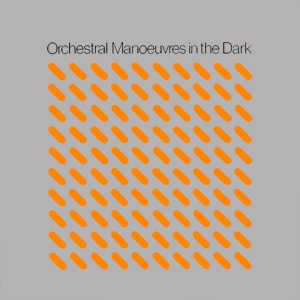
Orchestral Manoeuvres in the Dark is the debut studio album by English electronic band Orchestral Manoeuvres in the Dark (OMD), released on 22 February 1980 by Dindisc. Recorded at the group's Liverpool studio, it showcased their minimal synth-pop style and peaked at number 27 on the UK Albums Chart. "Electricity" and "Red Frame/White Light" were released as singles; a re-recorded version of "Messages" provided OMD with their first hit in the UK, reaching number 13.

Crush is the sixth studio album by English electronic band Orchestral Manoeuvres in the Dark (OMD), released on 17 June 1985 by Virgin Records. It is the first of two OMD studio albums to be produced by Stephen Hague. Aimed primarily at the US market, Crush is notable for moving the group towards a more polished sound, although elements of earlier experimentation are still present. During recording the band employed a greater use of organic instrumentation than in the past.

The Pacific Age is the seventh studio album by English electronic band Orchestral Manoeuvres in the Dark (OMD), released on 29 September 1986 by Virgin Records. It was the last of two OMD studio albums produced by Stephen Hague, after Crush (1985). The record exhibits the same refined production values as its predecessor while venturing into the realm of mid-1980s sophisti-pop, retreating further from the group's experimental beginnings.
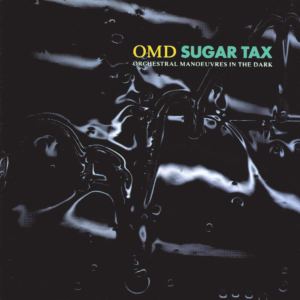
Sugar Tax is the eighth studio album by English electronic band Orchestral Manoeuvres in the Dark (OMD), released on 7 May 1991 by Virgin Records. It was the group's first studio album since 1986's The Pacific Age, and the first of three recorded without co-founder Paul Humphreys, who had departed in 1989. Featuring singer Andy McCluskey alongside a new backing band, Sugar Tax leans towards the then-prevalent dance-pop genre, with McCluskey's songwriting at times being influenced by the breakdown of his relationship with Humphreys.

Liberator is the ninth studio album by English electronic band Orchestral Manoeuvres in the Dark (OMD), released on 14 June 1993 by Virgin. Recorded by OMD frontman Andy McCluskey along with musicians enlisted for the multi-million selling Sugar Tax (1991), the album ventures further into the dance-pop style explored by its predecessor.
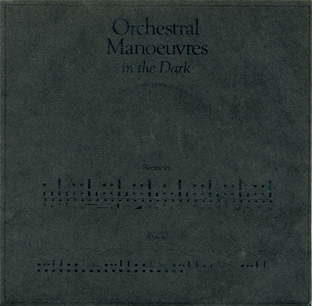
"Electricity" is the 1979 debut single by English electronic band Orchestral Manoeuvres in the Dark (OMD), featured on their eponymous debut album the following year. Andy McCluskey and Paul Humphreys sing the lead vocals on the track together in unison. Recognised as one of the most influential singles of its era, "Electricity" was integral to the rise of the UK's synth-pop movement. It has garnered praise from music journalists and other recording artists.
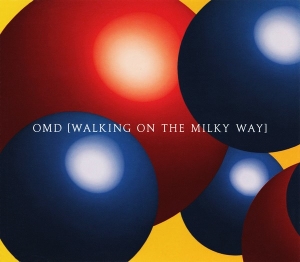
"Walking on the Milky Way" is a song by English electronic band Orchestral Manoeuvres in the Dark (OMD). It was released as a single on 5 August 1996 and appeared on their Universal album a month later. The song reached number 17 on the UK Singles Chart, becoming the group's first UK top-20 hit in over five years, and their last UK top-40 single. The band were flanked by a full string orchestra for their Top of the Pops performance of the song broadcast on 16 August 1996.

"Secret" is a 1985 song by English electronic band Orchestral Manoeuvres in the Dark (OMD), released as the second single from their album Crush. Paul Humphreys sings lead vocals on the track. It became their second US Billboard Hot 100 entry, peaking at number 63, and also made number 34 on the UK Singles Chart.

Peel Sessions 1979–1983 is a compilation album by English electronic band Orchestral Manoeuvres in the Dark (OMD), released in 2000. The songs were recorded between 1979 and 1983 for the BBC Radio 1 show presented by John Peel. "Electricity" is added as a bonus track and is the original version that was featured on their debut single on Factory Records (FAC6). "Bunker Soldiers" was recorded for the first and fourth sessions; the version from the fourth session was not released on this album.

"Joan of Arc (Maid of Orleans)" is a song by English electronic band Orchestral Manoeuvres in the Dark (OMD), released in 1982 as the third single from their third studio album, Architecture & Morality. To prevent confusion with the group's previous single "Joan of Arc", the song was retitled "Maid of Orleans (The Waltz Joan of Arc)" for its single release. Both songs are about the French heroine Joan of Arc and both reached the Top 5 of the UK Singles Chart—although this release was more successful internationally, topping the charts in several countries including Germany, where it was the biggest-selling single of 1982. "Maid of Orleans" has sold four million copies worldwide.
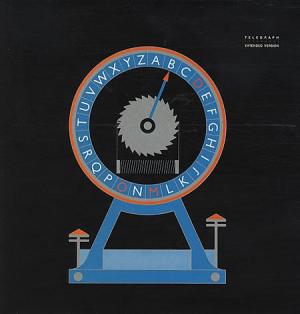
"Telegraph" is a song by English electronic band Orchestral Manoeuvres in the Dark (OMD), and the second single from their studio album Dazzle Ships (1983). "Telegraph" was originally slated to be the first single released, but being unhappy with the mix and with pressure from Virgin, the group instead opted for "Genetic Engineering".

History of Modern is the eleventh studio album by English electronic band Orchestral Manoeuvres in the Dark (OMD), released on 20 September 2010 by 100% Records. It is their first album since 1996, and the first to feature the classic four-piece OMD line-up since 1986's The Pacific Age. It was recorded remotely, with band members compiling the tracks via the Internet.

English Electric is the twelfth studio album by English electronic band Orchestral Manoeuvres in the Dark (OMD), and their second since the 2006 reformation of the group. Preceded by lead single "Metroland" on 25 March 2013, it was released on 5 April by 100% Records. Unlike predecessor History of Modern (2010), which was compiled remotely via the Internet, English Electric saw OMD co-founders Andy McCluskey and Paul Humphreys write and record in person, with the aim of recreating their artistic chemistry in years past. The album was largely inspired by McCluskey's then-recent divorce.
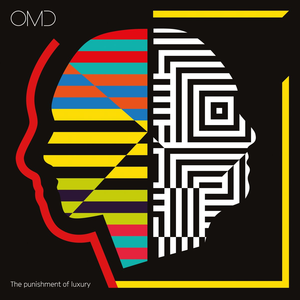
The Punishment of Luxury is the thirteenth studio album by English electronic band Orchestral Manoeuvres in the Dark (OMD), and the third since their 2006 reformation. Produced by OMD, it was released on 1 September 2017 by 100% Records in the UK and White Noise elsewhere. In July of that year, the band commenced a tour of North America and Europe in support of the record.




















